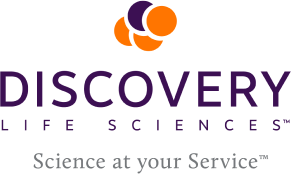Accelerating clinical trials saves lives

Time is important in clinical trials, the faster a drug can be progressed through the phases and approved, the sooner it can start to generate revenue and the longer the period of patent exclusivity a drug developer will enjoy. But, most importantly, there is a human side to this story. There are many cancer patients for whom current therapies have failed, for whom no therapeutic or surgical option remains who are waiting and hoping for the opportunity to be enrolled in a clinical trial for an experimental medicine that may save their lives. For these people, the value of time cannot be measured in dollars.
Adopting a reliable IHC assay early is crucial in cancer drug development
Biomarkers and companion diagnostics (CDx) provide insight into the interactions between a cancer indication and the therapeutic at a molecular level, insight that empowers decision making, and can be the difference between success and failure in the clinical setting. Adopting clinical trial ready immunohistochemistry (IHC) assays early in the drug development process is a low-cost, high-impact strategy to accelerate clinical trials and improve clinical outcomes. Cancer indications are often opaque, underlying pathways and molecular modes of action are not fully understood, and drug efficacy in patients is not clear-cut. The better we can understand the cancer indication, the underlying pathways, and the molecular action as well as the interactions of the drug with its target, and quickly identify any biomarkers that will help to refine our understanding, the faster development and clinical studies can go.

Target expression studies using IHC assays is a critical step in cancer drug development, and it is important to develop and utilize these assays as early in the development process as possible and not wait until a CDx is already being considered. In a target expression study, biomarkers are identified, and expression levels are measured in patient populations within and among different tumor indications in order to assess the prevalence of the biomarker as well as the potential effectiveness of the investigational drug. The outcome of these studies depends heavily on the robustness, specificity, and sensitivity of the biomarker assays that are developed. A robust IHC assay with a strong and consistent scoring scheme that can reproducibly report the expression level of a biomarker enables more rapid and error-free scoring of patients and provides greater insight into what is happening at the patient level during a clinical trial, and why some patients are responding differently to others.
If the IHC assay is not robust and/or sensitive enough, then the prevalence of the biomarker can be either under or overestimated, and the potential drug efficacy will be miscalculated, because the most appropriate patients, based on biomarker expression, may not properly be represented in the study. Under these circumstances, critical drug development decisions can be made based on incorrect data, resulting in missed opportunities or failures in clinical trials with cost implications for the pharmaceutical company and life or death implications for patients.
Discovery Life Sciences – because experience and expertise matter
Discovery Life Sciences (Discovery) has over 25 years of experience in assay development and optimization supporting over 1,100 clinical trials, both prospective and retrospective, in all phases from IND-directed pre-clinical development, to phase I through III clinical trials. On top of experience, Discovery’s scale is another key advantage, with expertise across the full spectrum of IHC platforms including Agilent, Leica, and Roche, all based in GCLP-certified, CLIA-certified, and CAP-accredited laboratories in both US and Europe. Discovery developed the prototype companion diagnostic IHC test for pembrolizumab which was the first drug approved for lung cancer patients whose tumors express PD-L1; as well as the HER2 biomarker assay for trastuzumab, the first drug approved for HER2+ breast cancer. These are two of the first major drugs to be approved in combination with a CDx assay. Discovery has a set of proven, proprietary workflows and robust biomarker scoring schemes that accurately and consistently capture the level of target expression. These workflows and the expertise of Discovery scientists have been used time and again in the elucidation of new biomarkers, and in the development of robust diagnostic tests that can be relied upon when deployed across multiple sites.
“We worked with 3 histology vendors to develop IHC assay for novel tumor antigen using commercially available IHC antibodies. Only the Discovery team was able to deliver robust and specific assay with staining characteristics that were suitable for our range-finding studies. Leveraging their in-house biorepository, Discovery was able to deliver a data package with scoring intensities for this antigen for 178 patient samples across 13 cancer indications. This information has been extremely valuable in understanding the clinical opportunity that targeting this antigen would provide.”
– Eric Tam, PhD, Sr. Director of Research at EvolveImmune Therapeutics
“We have been working with Discovery Life Sciences in Kassel, previously Targos GmbH, for many years on clinical validation of tissue biomarkers. This partnership is based on strong scientific focus and an open and honest relationship which led to the approvals of many companion diagnostics assays for Agilent and our pharma partners. We always appreciate the consistent high-quality services and the mutual trust we’ve developed over the years across our various internal functions such as R&D, Marketing, CDx, and Clinical Trials. Discovery has also established a fantastic Biomarker Academy training program that, in my opinion, has become a valuable cornerstone in the global pathology community.”
– Majken Nielsen, Associate Vice President, Head of Global Marketing, Pathology Division at Agilent Technologies
“In the past five of years, we have entrusted Discovery Life Sciences with the development and validation of a FISH assay for a novel biomarker (MAF-Test) predicting relapse in breast cancer and the response to specific drugs in adjuvant setting. Discovery’s expertise in assay development and target validation helps create a reliable scoring scheme accelerating identification of patients eligible for further treatment. Furthermore, Discovery’s experience in molecular pathology and consultative service approach always exceeded our expectations”
– Joël Jean-Mairet PhD, Executive Chairman, Inbiomotion SL

Discovery’s expertise extends beyond IHC, the target expression results can be orthogonally tested and validated via in-house genomics, proteomics, and cell services, a big advantage when validating a new biomarker assay. Discovery’s philosophy in assay development is to ‘build for scale’, creating high-quality, validated assays with solid controls using testing methods and materials suitable for bench top applications but also readily scalable for use in large global, multicenter clinical trials. In these large trials, acquiring clinical samples is also critical for the rapid identification and evaluation of biomarkers. As the world’s largest commercial biospecimen provider, Discovery maintains an inventory of more than 69,000 annotated, quality-controlled, FFPE tissue samples sourced from more than 16,000 unique patients, plus matched FFPE + Plasma sets.
Make sound, strategic clinical trial decisions based on reliable IHC results
Good drug development decisions start with dependable research, and in the challenging, competitive pharmaceutical market, that means accurate, reliable testing protocols and results. By partnering with an experienced biomarker expert early in the drug development process, sound, strategic decisions can be made based on accurate evaluation of biomarker prevalence and drug effectiveness. From the drug developers’ perspective, patient pools can be screened more rapidly, and more specific populations of patients can be identified for clinical trials, resulting in higher success rates and faster drug approval. From the cancer patients’ perspective, improving the clinical trial patient selection and accelerating the drug development process means that ultimately, they can access potentially life-saving medicine sooner. In the end, for both developers and patients, time is everything.


